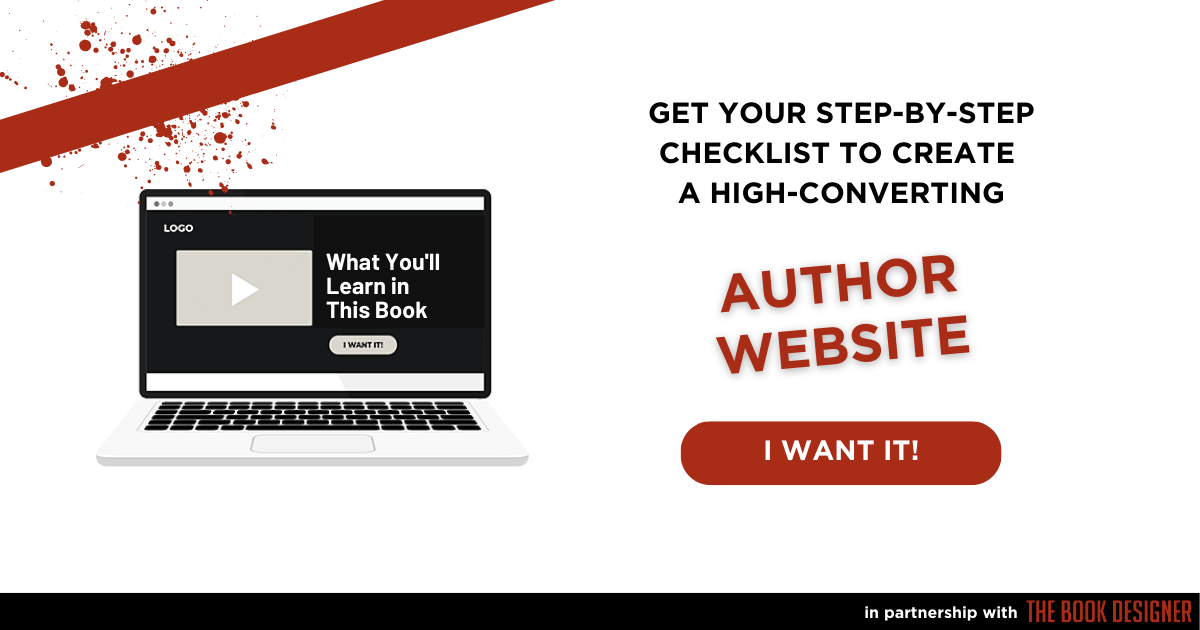By Jason Gracia
“A what???” We often get that response when we suggest self-published authors develop their author platforms to help sell their books. So, today, I’m pleased that Jason Gracia of AuthorPlatform|co is going to explain to you what an author platform is, and why you should invest some time and effort into developing yours.
The year was somewhere between 1997 and 2001 (these were my college days, so you’ll have to forgive the foggy memory). I do remember that it was late, the bar was crowded, and my roommates and I sat around an old, carved up wooden table having one of the most common discussions known to the world of young men sitting around a table in a bar.
“Which one?”
“Over there. By the girl with the hair.”
“Ahh, that one. Go talk to her.”
“I will, I will. Just gotta find the right moment.”
Though I would eventually develop the chutzpa to chat up any stranger in any setting, at that point in time I often stuck to my chair and talked about what I would do…but never did. So in this case, it was my roommate who was convinced he had found his true love after gazing across that crowded bar.
He took a drink, stood tall, and walked across the room.
Three minutes later he returned, dejected. He thought they should go out sometime. She disagreed.
Days later my other roommate (I had six, so stories abound) mentioned that he met someone in class that day. They were teamed up for a project. Over the course of two weeks they got to know one another, each doing their part to deliver a solid result and earn an A. They continued to spend time together after the project, first as friends and then, eventually, as a couple.
In these two experiences lies the secret to succeeding as an author.
Millions of authors are asking girls (or guys) out at the bar, trying to secure a relationship at first glance. A smaller, wiser group is building a connection over time before sealing the deal. They’re building platforms.
What are We Talking About?
An author platform is an audience of:
- engaged readers,
- watchers,
- and listeners.
It’s your community, one that is built upon value and is easily reached. Some rely on social while others look to their blog. I strongly suggest you focus on email.
There’s no problem with building up outside hubs; a marketing plan without social is obviously flawed these days. The core, however, should be your list of email subscribers.
Only email delivers you to your audience day in and day out, without shifting algorithms or streaming bits and bytes that whip by at breakneck speed. It’s yours to control. Facebook, Twitter, Instagram, and the like can change the way they do business–and in turn the way you do business–overnight…and you can’t do a thing about it.
There’s also context to consider. Rarely do people go on social to buy books or courses or coaching. Via email? They buy billions.
The Importance of Your Platform
Now that we speak the same language, it’s time to badger you.
I’m great at badgering. Some would even venture to say superb. Need proof? Just ask my wife. It’s with this incredible skill that I badger you to do one thing: build your platform. Why? Let us count the ways…
-
- Low-Risk Encounter: To ask a stranger to buy your book is a high-risk encounter. He or she doesn’t know you, has little reason to trust you, and can’t yet like you. Giving you money (which entails many steps with many obstacles) could result in regret, lost time, and lost money. It’s asking for a date five minutes after meeting.Joining your platform, on the other hand, comes with minimal risk. Offer you my email address? That’s something most eager prospects will gladly do in exchange for a little free value. It’s asking for a chat with a new friend in class.
-
- Real Relationships: You have the ability to build a real relationship with real people. Not so with an Amazon visitor who decides after three seconds to click away from you forever.Instead of writing for and selling to a faceless digital mob, you would be serving a group of men and women and children with names and needs, dreams and desires. You’ll also be building a relationship over time. Because a platform gives you many chances to connect with your people, you have many chances to help them. Do that enough times and you’ll have thousands of loyal members.
- Sales Boost: As the “authorpreneur” guy, earning more income as an author is one of the centerpieces to my work. As long as the money comes from over delivering on your promises, the more you earn, the better. It’s not the only reason to build a platform, but it’s certainly an important one. Just why you’ll sell more with a platform is a simple matter of timing. The longer I know you and the longer you provide me with value, the more likely I am to buy what you’re selling.
As you read above, this is one of the reasons platforms are so powerful–they allow you to develop relationships over time. Not only that, but you have to hit me with an offer when I’m ready for it. Try to sell me gasoline when I’m cruising with a full tank and I’ll pass on by. Make that same offer when I’m coasting on fumes and you’ve got me hooked. So it goes with book selling. A platform allows for future interactions, which drastically improves your chances of making the right offer at the right time.
How It Works
Now that I’ve brilliantly and thoroughly convinced you to build a platform (or a bigger one), how do you actually do it? The sequence I use with every book and every business is built upon four parts.
First, the website.
You need your own domain coupled with a great looking website.
Your own domain is a given if you want to be taken seriously, but the importance of brand design isn’t so obvious to some authors. This is a mistake. The design of your website is vital. It’s your face to the world. It if looks bad, looks outdated, looks clunky, people will assume the same of you and your work. We can’t help it; we’re programmed to judge the value of a brand by its look and feel upon first contact. It’s telling that online business gurus keen on lean say you can skimp on most things when getting started–but never design.
I suggest one of three paths depending on your budget:
-
- out-of-the-box WordPress theme,
- customized WordPress theme,
- or a fully custom site.
The cost grows from standard to custom, but if you can afford it, a custom site will pay you back many times over. But you can do quite well with a professional theme. Just be sure to keep any branding elements you use consistent to make it all your own.
Resources: Bluehost is a great option for your domain and hosting. As for themes, I love what Michael Hyatt has done with the Get Noticed! theme. My personal favorite–and the theme I use for all of my sites and the sites I design for my clients–is Avada. It’s a drag-and-drop theme that offers limitless customizations. With a little poking around, you’ll find more than enough professional themes to represent your brand.
Second, the magnet.
Lead magnets, which used to deliciously be called cookies, are free pieces of content offered in exchange for a visitor’s name and email address.
They range from:
-
- PDF checklists
- cheat sheets
- quizzes
- training videos
- first chapters
- software trials
…the list goes on and on. They key is that it’s actually valuable and helps the receiver, not necessarily get from Point A to Point Z, but at least get to Point B. As an author, you’re in a prime position for lead magnet ideas–your books.
Nonfiction authors–the focus of my work and play–have it easy. As a nonfiction author you’re often attempting to inform, which means you can snip a multitude of pieces from your work to create a self-contained nugget of value visitors would eagerly sign up to receive.
Fiction writers have it a bit tougher, but not impossible. If I were a fiction author in the science-fiction genre, I could offer character backstories, unpublished chapters, detailed maps of faraway worlds, or behind-the-scenes development of my stories to name a few.
All writers, nonfiction or otherwise, can create a giveaway that calls out to their ideal readers.
Resources: The second half of this piece is a method for collecting the name and email of your visitor. Again, options abound. I personally use AWeber, but that’s because I like things light and easy. Other services comparable to AWeber are Constant Contact, iContact, and MailChimp (which is free up to 2,000 subscribers). If you’re looking for something more robust, ConvertKit is picking up steam.
Third, the traffic.
People are the platform, so you need a way to attract the right ones to your website and lead magnet.
I teach O.P.P. Not the 90s rap version but the squeaky clean version of Other People’s People. One by one is a slow way to build a stadium of fans. Instead, find people who have already gathered your ideal men and women and then find a way to get in front of them.
The lowest hanging fruit are what you’re reading right now–guest posts. Blogs the world over are in constant need of great content, especially as the pace of NEW doubles daily. Do your research, find the right sites, and reach out with value to offer.
I’m also a big fan of podcast interviews. Again, it puts you in front of a ready-made audience. On the other side of the pocketbook spectrum is paid advertising. It’s fast, powerful, and the perfect path to perpetual traffic…if you take the time to do it right.
Resources: Google is my go-to resource when finding places to guest post or be interviewed, but I’m also liking Buzzsumo. It’s a handy tool used to find the most popular content around the web, which means you can use it to find leading blogs as well as popular guest posts (revealing potential guest posting spots).
Fourth, the content.
You have:
-
- the site,
- the gift,
- and the people who have visited that site and joined your platform (email list) to get that gift.
The final step in our platform-building journey is helping your community. Service is the glue that binds your people to you and to each other. This is an ocean of a topic, but I’m going to make it easy on you and give you a step-by-step sequence to get started.
Ask for your new subscriber’s #1 challenge in the first email you send after signup. Answer those questions with blog posts, videos, or podcast episodes, whichever medium fits you best. (Or all three if you’re an overachiever.) No matter the vehicle you choose, make a real effort to create content that is uncommon, thorough, and actionable. Try, really try, to create something that people can actually use to get a result. Sounds obvious, but it’s rare.
Final Thoughts
Our time has come to an end, but what a time it’s been! We covered:
-
- the definition of a platform,
- the importance of a platform,
- and the steps to build a platform.
Now I need something more than a mere nod of agreement that you should do something. Actually do something.
-
- Sign up for that domain and find a great theme. Been there, done that?
- Create a compelling lead magnet and offer it throughout your site. Checked off the list already?
- Make a goal of reaching out to 30 sites for a guest post or interview within the next 30 days.
You get the idea. Now get to work.
 Jason Gracia is the author of Shifting the Balance and founder of AuthorPlatform|co, where he helps authors reach more readers, sell more books, and make a difference with their work. For a copy of Jason’s free guide, Platform Pillars: The 5 Pillars behind Every Successful Author Platform, visit authorplatform.co/freeguide/.
Jason Gracia is the author of Shifting the Balance and founder of AuthorPlatform|co, where he helps authors reach more readers, sell more books, and make a difference with their work. For a copy of Jason’s free guide, Platform Pillars: The 5 Pillars behind Every Successful Author Platform, visit authorplatform.co/freeguide/.
Photo: pixabay.com




